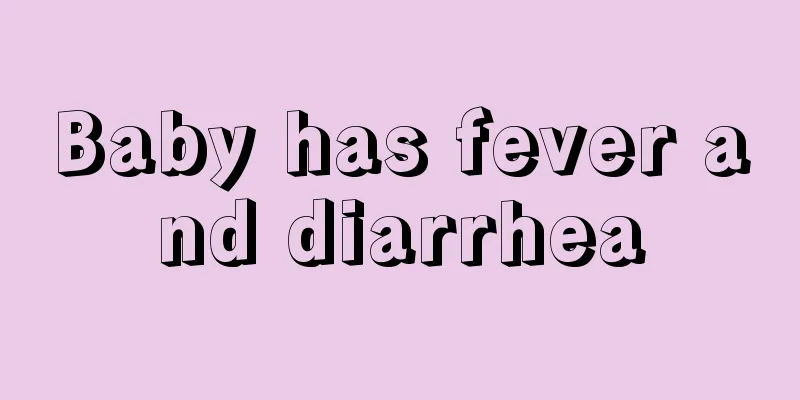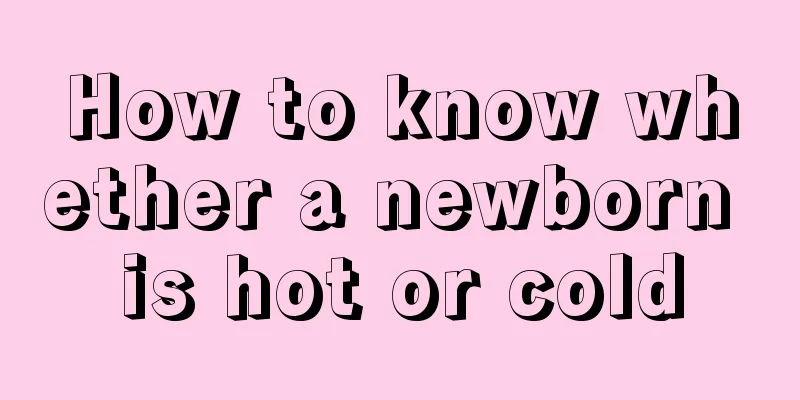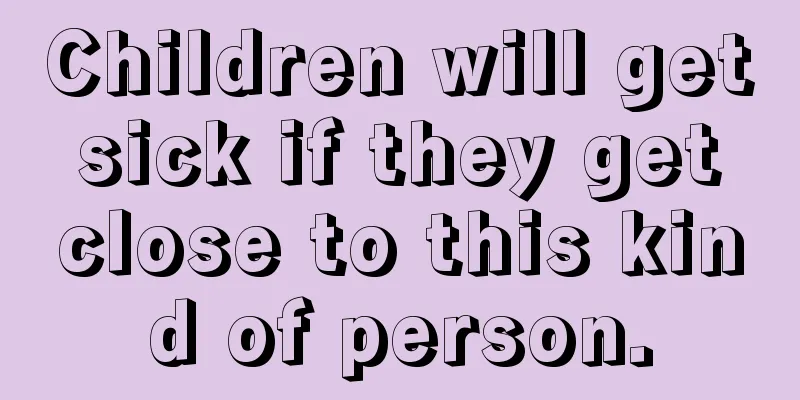Baby has fever and diarrhea

|
When your baby has a fever and is also suffering from diarrhea, the most important thing is to reduce the temperature. You cannot let your baby's fever symptoms get worse, otherwise it will cause damage to their brain tissue. At this time, you can try some physical cooling methods to improve their fever. If necessary, you can use some antipyretic drugs. Fever refers to a body temperature that exceeds the upper limit of the normal range and is a very common symptom in children. The normal axillary temperature of children is 36℃ ~ 37℃ (the temperature measured by rectal thermometer is about 0.3℃ higher than that measured by oral thermometer, and the temperature measured by oral thermometer is about 0.4℃ higher than that measured by axillary thermometer). If the axillary temperature exceeds 37.4℃, it can be considered as fever. In most cases, fever is a protective response of the body against invading pathogens and is a process in which the human body mobilizes the immune system to fight infection. An abnormal increase in body temperature is not necessarily proportional to the severity of the disease, but excessive fever or long-term fever can affect the body's various regulatory functions, thereby affecting the child's physical health. Therefore, for children confirmed to have a fever, the cause should be actively identified and treated accordingly. A child's normal body temperature may fluctuate within a certain range due to factors such as gender, age, day and night and seasonal changes, diet, crying, temperature, and the thickness of clothing. A slight increase in body temperature does not necessarily have pathological significance. When a child's temperature rises, pay attention to the child's demeanor and behavior. A child with a body temperature of 38℃ and a dull look is more worthy of attention than a child with a body temperature of 40℃ but still naughty. Children with low resistance will most likely not have a fever even if they suffer from a serious illness. 2) Other system infections: intestinal infection, urinary system infection, central nervous system infection (encephalitis, meningitis), cardiovascular system infection (such as infective endocarditis, pericarditis), hepatobiliary system infection (such as hepatitis, cholangitis, liver abscess, etc.); 3) Systemic infections such as sepsis, tuberculosis, typhoid, paratyphoid, typhus, brucellosis, Epstein-Barr virus infection, cytomegalovirus infection, Lyme disease, leptospirosis, malaria, kala-azar, schistosomiasis and fungal infections; 4) Abscess or localized infection such as osteomyelitis, perinephric abscess, subphrenic abscess, appendiceal abscess, perianal abscess, etc. (2) Non-infectious fever 1) Juvenile rheumatoid arthritis is the most common rheumatic disease. In recent years, as streptococcal infections have been promptly controlled, rheumatic fever has become less common. Other rheumatic diseases that cause fever include systemic lupus erythematosus, polyarteritis nodosa, Kawasaki disease, serum sickness, dermatomyositis, nodular nonsuppurative panniculitis, Wegener's malignant granulomatosis, and angioimmunoblastic lymphadenopathy. 2) Malignant tumors with tissue destruction or necrosis, with leukemia being the most common, and others including malignant lymphoma (including Hodgkin's and non-Hodgkin's lymphoma), neuroblastoma, malignant histiocytosis, Langerhans' histiocytosis and Ewing's sarcoma; large-area burns, after major surgery, internal bleeding absorption process, vascular embolism, etc. 3) Excessive heat production or reduced heat dissipation Excessive heat production is seen in hyperthyroidism, status epilepticus, and adrenal hyperfunction; reduced heat dissipation is seen in generalized dermatitis, massive water loss, blood loss, heat stroke, congenital ectodermal dysplasia, and excessive wrapping of newborns. |
<<: What to do if your three-month-old baby gets cold and has diarrhea
>>: Child coughs and stomachache
Recommend
What is the reason for the three-month-old baby's shortness of breath?
When parents are taking care of their babies, the...
What happens when my child gets blister-like bumps on his body?
Very young children may develop many kinds of ski...
What is the cause of the child's abdominal effusion?
The health of children is a matter that concerns ...
Treatment for recurrent fever in babies
We don't know how much we know about the prob...
What should I do if my one month old baby has enteritis?
The baby's physical health will often be affe...
The dangers of eating too much
Generally speaking, the various organs of a baby&...
What are the symptoms of nasal polyps in children?
When children show symptoms of nasal polyps, pare...
What causes stomach pain in children?
When it comes to stomachache, most people may thi...
Baby's five-month sleep time and precautions
An important issue that many of us overlook is sl...
Can a three-year-old baby drink milk from a bottle?
Three-year-old babies should no longer use bottle...
Child coughs and stomachache
Children's coughing will make parents feel ve...
Baby spits up after feeding
There are many behaviors of babies in daily life ...
What is the best food for children with antral gastritis?
Children can easily get sick if they are not care...
What causes acute hemiplegia in children?
Children are the hope of every family. They hope ...
One-year-old baby has a cold and runny nose
It is very common for babies to have symptoms of ...









